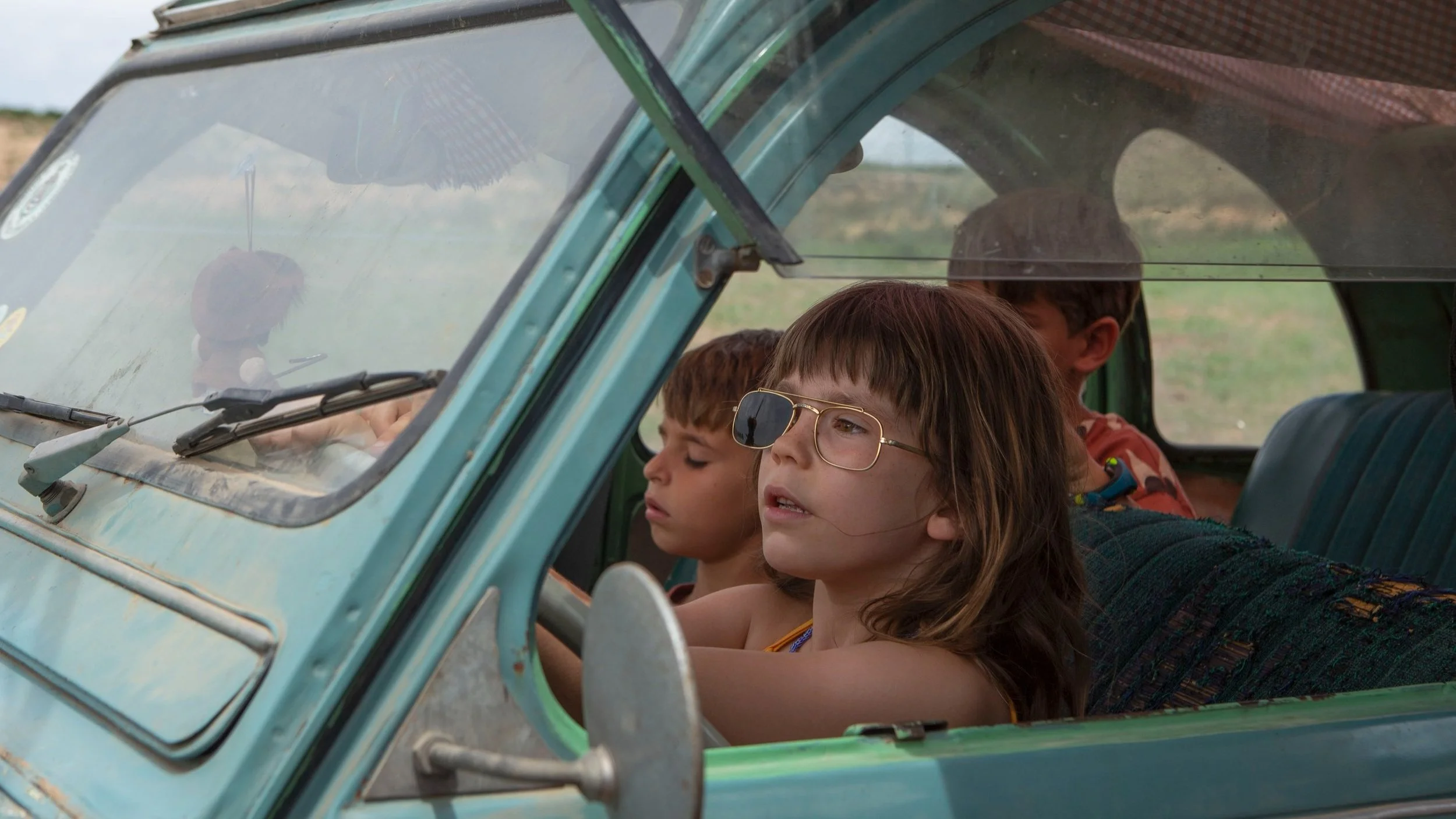Alcarràs
Carla Simón’s Golden Bear-winning drama is a deeply authentic portrayal of life in rural Catalonia.
Carla Simón’s Alcarràs, her second future, takes its name from a town in Spain and when it won the Golden Bear at the 2022 Berlinale it was celebrated as the first film in Catalan to achieve that. It is, indeed, in many respects a memorable film, as was Simón’s previous feature made in 2017, Summer 1993. But, if it is easy to find much in it to admire, it's a work with problematical features too. Nevertheless, it feels apt to begin by outlining its qualities.
Although Simón was born in Barcelona, she spent her youth in a Catalan village and now proves acutely sensitive in creating a persuasive portrait of a family of Catalonian peach farmers. Three generations of the Solé family are the central characters here and the casting of non-professional players in these roles could not be more adroit. Not only do they all look right but, without exception, they give thoroughly naturalistic performances that create a wonderful sense of authenticity. The colour photography of Daniela Cajías is a great asset too and the warmth of the setting feels tangible.
Social issues are far from irrelevant in Alcarràs since it portrays a situation in which the Solé family have been given notice to quit their land by the end of the summer. It has been their home for a very long time and the grandfather, Rogelio (Josep Abad), recalls how it was gifted to them years back for significant services to the Pinyols who were the landowners. But nothing was put in writing and Joaquim Pinyol (Jacob Diarte), now the key member of that family, has not hesitated to claim the property occupied by the Solés since he plans to develop the area by bringing in solar panels which will supersede its use for traditional farming. If this is specifically the plight of the Solé family, it also becomes clear that other farmers in the region are being forced to sell up. Indeed, those who work the land and distribute its crops are being widely pressurised and exploited by profit-making concerns.
Despite this overall view, Alcarràs is most memorable for its insightful portrait of contrasting generational attitudes as shown within the family central to it. The aged Rogelio represents a past age as is confirmed by his belief in a gentleman’s agreement being all that was needed for the family’s right to the land to be secure and by his fond memories of Spanish songs that characterised his younger days. His son, Quimet (Jordi Pujol Dolcet), is the patriarch of the family running the farm, opposing change and determined not to be won over when Pinyol offers to mitigate the situation somewhat by offering employment of a kind in his new set-up. Meanwhile, Quimet’s teenage children, Roger (Albert Bosch) and Mariona (Xènia Rosset) have a more modern outlook even though they still live with their parents. Indeed, Roger is somewhat drawn to the alternative attitude of Cisco (Carles Cabós) who came into the family by marrying one of Quimet’s sisters. Cisco, supported by his wife, Nati (Montse Oró), is ready to work for Pinyol going where the money is and having no attachment to the family’s established life-style.
Carla Simón could not be more persuasive in drawing these figures and their contrasting attitudes as shaped by the changing times. Indeed, it is only in the scenes featuring those children in the family who are still infants that we get a sense of a world of childhood games that remains virtually timeless. But, if all this invites admiration, it does seem to be a serious drawback that the Solé family contains so many members that one is distracted by trying to remember who is who and exactly what their relationships are. Eventually, the main characters do fall into place, but even then additional figures appear later on to add to the confusion. Possibly Simón is too close to her material and fails to recognise a certain lack of clarity in her work. When reviewing Summer 1993 I mentioned that some of the subsidiary figures were rather vaguely presented, but the issue becomes more acute here when it applies to those making up a family who are central to the tale. Furthermore, while one welcomes the everyday quality of the work – the refusal to play up the drama – there is at times a sense of the narrative in Alcarràs becoming too understated for its own good. That is felt all the more due to Simón opting for a generous running time of two hours. Nevertheless, if these drawbacks seem unfortunate, those aspects of the film that Simón gets right are ones that can't be taken for granted and they do ensure that much in Alcarràs is truly memorable.
MANSEL STIMPSON
Cast: Jordi Pujol Dolcet, Anna Otin, Josep Abad, Albert Bosch, Xènia Rosset, Carles Cabós, Ainrt Jounou, Montse Oró, Joel Rovira, Isaac Rovira, Berta Pipó, Jacob Diarte, Abril Baltrons, Antònia Castells, Elna Folguera, Djibril Casse, Irati Elordui.
Dir Carla Simón, Pro Tono Folguera, Sergi Moreno and Stefan Schmitz, Screenplay Carla Simón and Arnau Vilaró, Ph Daniela Cajías, Pro Des Mónica Bernuy, Ed Ana Pfaff, Music Andrea Koch, Costumes Anna Aguila..
Avalon/Kino Produzioni/Alcarràs Film/Elástica Films/MK2 Films-Mubi.
120 mins. Spain/Italy. 2022. UK Rel: 6 January 2023. Cert. 15.


